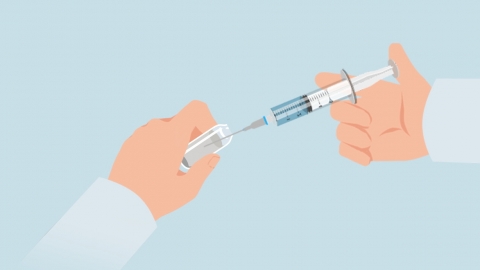What are the effects of adrenaline?
Generally, adrenaline, as a commonly used hormone medication in emergency treatment, has several key functions including increasing blood pressure, relieving bronchospasm, stimulating the heart, constricting local blood vessels, and counteracting anaphylactic shock. Detailed explanations are as follows:

1. Increasing blood pressure: Adrenaline can constrict small arteries and veins throughout the body, increasing peripheral vascular resistance. It also enhances myocardial contractility, making it suitable for emergency situations such as hypotensive shock or a sudden drop in blood pressure caused by severe allergies, helping to rapidly raise blood pressure and maintain blood supply to vital organs.
2. Relieving bronchospasm: This medication relaxes bronchial smooth muscles, dilates the bronchial lumen, and alleviates breathing difficulties caused by bronchospasm. It is suitable for acute asthma attacks or laryngeal edema caused by severe allergic reactions, helping to restore airway patency and improve respiratory function.
3. Stimulating the heart: Adrenaline acts on the β-receptors of the heart, enhancing myocardial contractility, increasing heart rate, and boosting cardiac output. It is indicated for critical conditions such as cardiac arrest or severe bradycardia, helping to restore normal heart rhythm and pumping function, thus providing circulatory support to the body.
4. Constricting local blood vessels: When applied locally, adrenaline constricts blood vessels at the injection site, reducing the absorption rate of local anesthetics, prolonging the duration of local anesthesia, and lowering the risk of local anesthetic toxicity. It can also be used to control minor local bleeding and assist in hemostasis.
5. Counteracting anaphylactic shock: In cases of severe allergic reactions, adrenaline can simultaneously alleviate life-threatening symptoms such as hypotension, bronchospasm, and laryngeal edema. Through multi-target effects, it rapidly corrects the shock state and provides time for subsequent treatment.
When using adrenaline, it is important to note that it is an emergency medication and must be administered strictly according to dosage and route under the guidance of qualified healthcare professionals. Patients with hypertension, coronary artery disease, or hyperthyroidism should use it cautiously to avoid serious adverse reactions and ensure medication safety.








